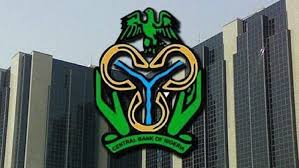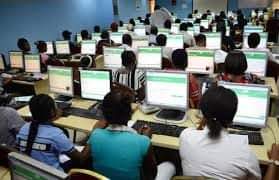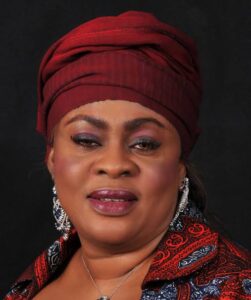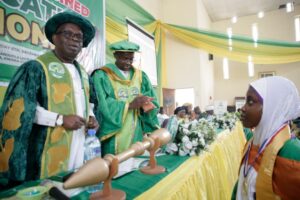
CBN Headquarters
The Central Bank of Nigeria (CBN), in partnership with the Nigerian Educational Research and Development Council, is set to introduce financial literacy into the curriculum for primary and junior secondary schools nationwide.
The acting Head of the CBN’s Consumer Protection Department, Mr. Ibrahim Yahaya, announced this initiative on Thursday during the World Savings Day celebration at the Federal Science and Technical College in Orozo, Abuja.
Speaking to journalists, Yahaya stated, “We have had a productive collaboration with NERDC, which oversees curriculum development in Nigeria. The curriculum has been finalised and is set to be launched. Once that is completed, it will be incorporated into the school syllabus for junior and primary levels. This will cover topics on savings, investments, and other essential financial information for our population.
“We have had a very wonderful collaboration with NERDC, the owners of curriculum development in Nigeria. So, we have been in collaboration with them for some time now. The curriculum has been developed and waiting to be launched.
“So once that is launched, we will get that included in the school curriculum for junior and basic schools, and that will be part of what children will learn in schools as well as all these matters around savings and investments, and quite several other financial information that are very important for the population, generally.”
Yahaya stated that although the formal rollout of the curriculum is still forthcoming, both the CBN and NERDC are working diligently to accelerate its launch.
He described the initiative as timely, especially in light of World Savings Day, underscoring the importance of fostering a culture of saving and investing from a young age.
Yahaya further highlighted the need to strengthen a savings culture across the country.
He said, “School intervention, especially at this time that we celebrate the World Savings Day is very, very crucial. Why? Because we are targeting the young minds. Telling them about the importance of savings is crucial for economic development everywhere. What banks and other lending institutions give out as credit comes from our deposits, which is part of savings.
Yahaya remarked that the significance of savings and investments cannot be over emphasized.
In March 2024, the CBN announced its commitment to integrating the finalized National Financial Literacy Curriculum into the school academic calendar by October this year.
Recent data from the CBN also indicates that Nigeria’s financial inclusion rate has risen considerably, reaching 67 percent in 2023, up from 65 percent.
This increase marks a record growth from 68.8 million to 69.2 million financially included individuals.
Meanwhile, the proportion of financially excluded Nigerians dropped from 36 percent (38.2 million people) to 32 percent, now representing 33.9 million.
The data reveals that the number of banked individuals has risen from 47.7 million to 54.2 million.
An additional 5.3 million, or 5 percent, have been brought into the system through other formal channels, while 8.6 million (11 percent) have gained access to financial services through informal methods.
For Advert, Event Coverage/Press Conference Invite, Story/Article Publication, PR & Other Media Services
Contact Us On WhatsApp
Send Email To: citizennewsng@gmail.com
Visit Citizen NewsNG To Read More Latest And Interesting News Across Nigeria And The World












